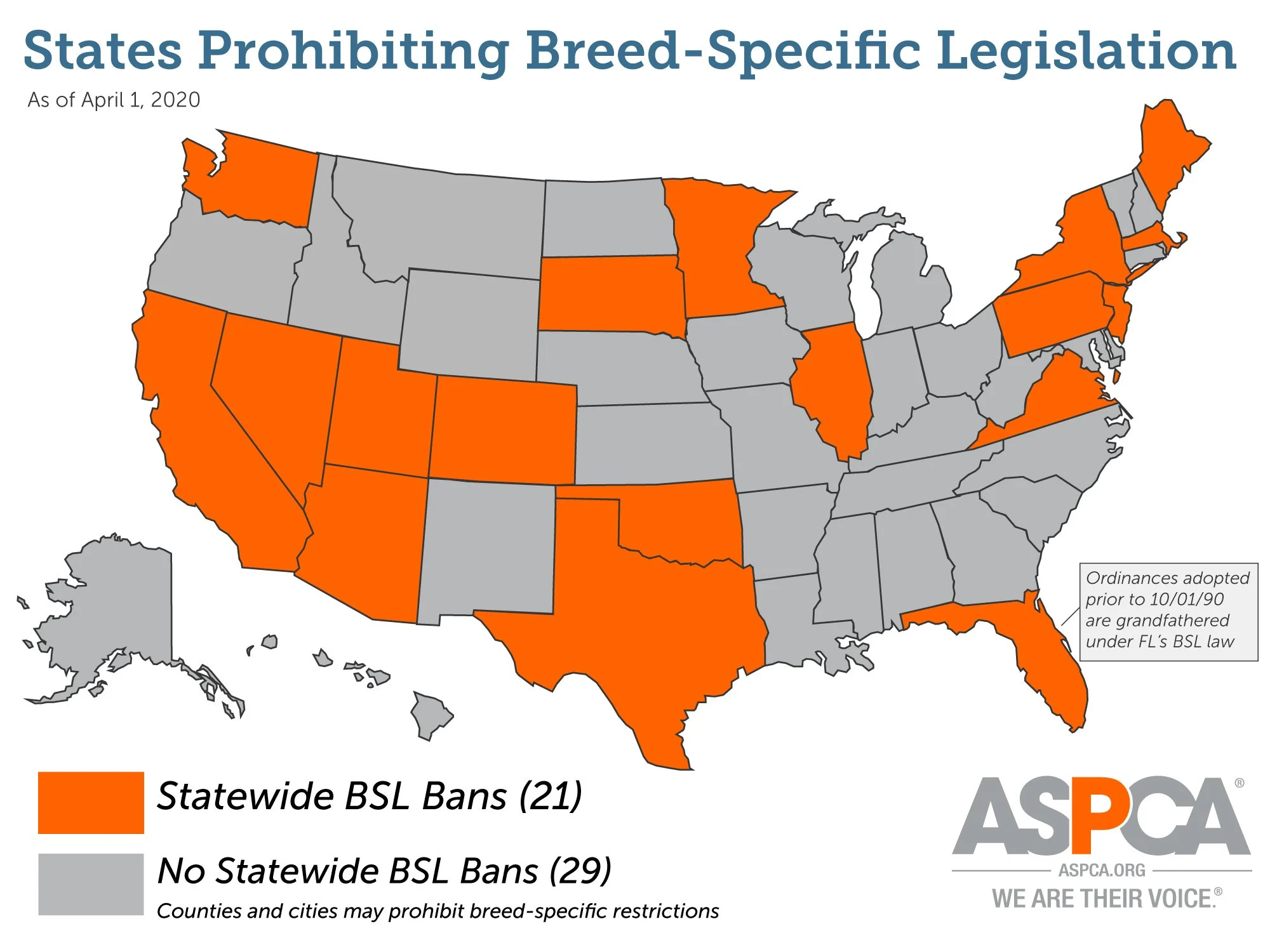Understanding Restricted Breed Lists in Homeowners Insurance
The “restricted breed list” is an often-overlooked restriction to many homeowners’ insurance policies and is a significant factor for many dog owners, as it relates to the perceived risk associated with certain breeds of dogs. Below, I will explain the concept, the impact of dog bite claims on insurance rates, and provide some relevant statistics.
Restricted Breed List, Explained:
1. Definition: Many homeowners insurance policies include a “restricted breed list” that identifies specific dog breeds considered high risk due to their potential for aggressive behavior. As a result, insurance companies may refuse coverage, charge higher premiums, or impose exclusions for liability claims involving these breeds.
2. Commonly Restricted Breeds: The breeds most frequently found on these lists typically include:
· Pit Bull Terriers
· Rottweilers
· Doberman Pinschers
· German Shepherds
· Chows
· Akitas
· Presa Canarios
· Mastiffs
· Wolf hybrids
The specific breeds vary by insurer, but these are amongst the most commonly restricted.
Impact of Dog Bite Claims on Insurance Rates
1. Liability Claims: Dog bites are one of the leading causes of liability claims against homeowners insurance policies. According to the Insurance Information Institute (III), dog bites accounted for more than one-third of all homeowners' liability claims in the United States.
2. Financial Impact: The average cost of a dog bite claim can be substantial. For example, the III reports that the average cost of a dog bite claim in 2021 was approximately $49,000. Severe injuries can lead to even higher costs, especially if they require extensive medical treatment or result in long-term consequences.
3. Influence on Premiums: As claims for dog bites increase, insurance companies may adjust their rates accordingly. Frequent claims can lead to premium increases for homeowners, especially those with restricted breeds. This adjustment is based on the insurer’s assessment of risk and the historical data surrounding dog bites.
Statistics & Claims
Prevalence: The Centers for Disease Control and Prevention (CDC) estimates that approximately 4.5 million dog bites occur each year in the United States, with about 20% requiring medical attention.
Most Common Breeds Involved: According to various studies and reports, the following breeds are often involved in dog bite incidents:
· Pit Bulls: Often cited as the most common breed involved in serious injuries.
· Rottweilers: Frequently appear in statistics for severe dog attacks.
· German Shepherds: Known for their protective nature, they are also among the breeds involved in several bite claims.
· Mixed Breeds: Many incidents also involve mixed-breed dogs, which can complicate the data on breed-specific behavior.
How Dog Bite Claims Affect Insurance Rates
Liability Risk: Dog bites are a leading cause of homeowner’s liability claims. The Insurance Information Institute (III) reports they account for over one-third of such claims in the U.S.
Financial Impact: The average dog bite claim cost reached $49,000 in 2021 (III), with severe injuries driving expenses higher due to medical bills, legal fees, and long-term care.
Premium Adjustments: Insurers may raise premiums for homeowners with high-risk breeds after claims, reflecting the elevated risk profile.
Fatalities: The CDC also reports that dog attacks result in fatalities, with certain breeds more frequently implicated in these tragic events. From 2005 to 2017, Pit Bulls were involved in 66% of dog-related fatalities.
In Conclusion:
The restricted breed list is a crucial yet unfortunately overlooked consideration for homeowners with specific dog breeds, as it can significantly affect insurance coverage and costs. Dog bite claims are a leading cause of liability claims in homeowners’ insurance, which in turn impacts premiums and coverage options.
If you are a dog owner or planning to get a dog, it is advisable to review your homeowner’s insurance policy carefully and discuss any potential issues with your insurance agent. This proactive approach can help you avoid unexpected costs and ensure that you have the coverage you need. If you have further questions about your particular situation, or need assistance in navigating insurance options, please feel free to ask! customerservice@easternstandardins.com
Disclaimer:
The content in this publication is intended solely for informational and educational purposes and should not be interpreted as financial, investment, or legal advice. Eastern Standard Insurance Consultants, LLC does not guarantee the accuracy, quality, completeness, or timeliness of the information presented. While efforts have been made to ensure accuracy, no assumption should be made that the content is free from errors. Some information may have been provided by third parties and has not been independently verified by Eastern Standard Insurance Consultants, LLC. Neither Eastern Standard Insurance Consultants, LLC nor its affiliates or subsidiaries accept any liability for the information
